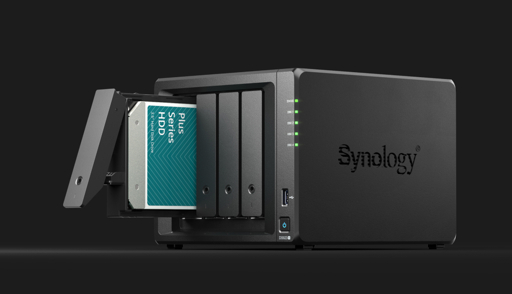Synology’s telegraphed moves toward a contained ecosystem and seemingly vertical integration are certain to rankle some of its biggest fans, who likely enjoy doing their own system building, shopping, and assembly for the perfect amount of storage. “Pro-sumers,” homelab enthusiasts, and those with just a lot of stuff to store at home, or in a small business, previously had a good reason to buy one Synology device every so many years, then stick into them whatever drives they happened to have or acquired at their desired prices. Synology’s stated needs for efficient support of drive arrays may be more defensible at the enterprise level, but as it gets closer to the home level, it suggests a different kind of optimization.



I am a tech oriented person, I work in IT, and a Syno ticks the boxes in many respects.
Low power draw. Power efficiency is very important to me, especially for something that runs 24/7. I don’t know how efficient self-build options are these days, but 10 years ago I couldn’t get close to the efficiency of a good NAS.
Set and forget. I maintain enough systems at work so I don’t really want to spend all of my free time maintaining my own. A Syno “just works”, it can run for months or years without a reboot (and when it does need one, it does it by itself overnight), and I can easily upgrade or swap a dead drive in a couple of minutes. When the entire NAS dies I can stick the drives in a new one and be up and running almost instantly.
Size and noise. I don’t have a massive house, so I need something that can sit on a shelf and be unobtrusive. In our last house it was literally sat in the living room, spinning drives constantly, and nobody was bothered by it.
The Syno I have is plenty good enough to run a bunch of Docker containers and a few VMs for all of my self hosted stuff, and it just does the job efficiently, quietly, and without complaining or needing constant maintenance.
I don’t like this creep towards requiring branded drives and memory, though I’m pretty sure it’s not legal in the EU. Regardless there are ways around it.
Yeah I agree, I set up a synology as a little summer project and I didn’t want to go out and source parts and put a nas Linux distro to do everything myself. Synology is newbie friendly and kind of holds your hand to do everything even dynamic dns. However, if I were to get another nas, I would be more comfortable setting it up myself.
We use DS223j’s at work for our clients as backup targets.
Fast to set up and configure from a total beginner up to experienced IT personal.
And I set up NFS, Samba and ACLs in my own Debian NAS.
It aint so sleek and braindead-simple like a Syno does it.
One question in regards to your noise comment: What drives are you running? I have a synology with 2 toshiba mg08 16tb drives and those things are unbearably loud when reading or writing. A lot of that obviously comes down to the drives themselves but I also kind of blame the plastic chassis for probably resonating with the noise and not being better at soundproofing.
It’s an 8 bay unit with six drives that are a mix of WD Red and Seagate Ironwolf, all NAS grade drives, basically. The other two slots have SSDs for hosting the aforementioned containers and VMs.
The largest drives I have are 4TB though, so maybe the larger capacity ones are louder? I also ran the fan profile in whatever the quietest setting is.